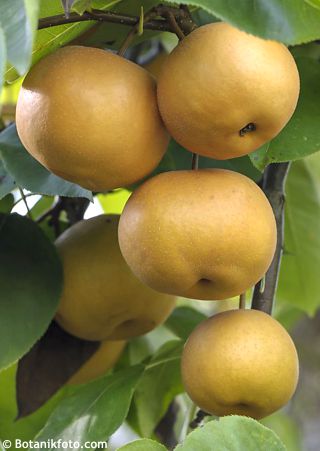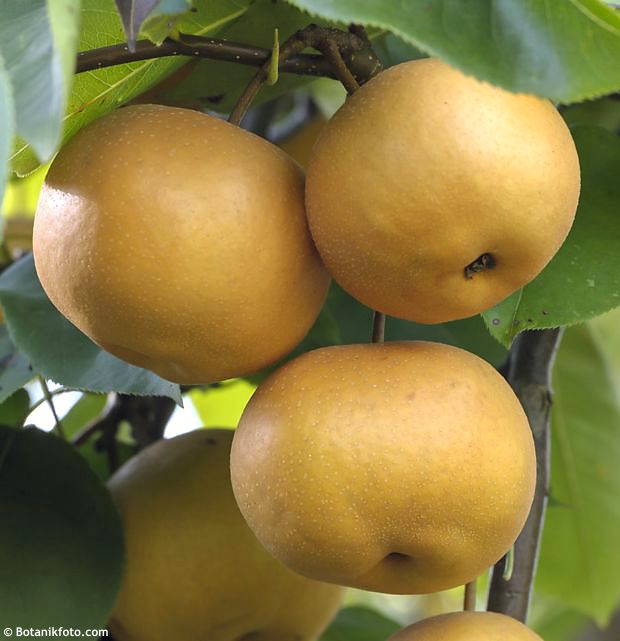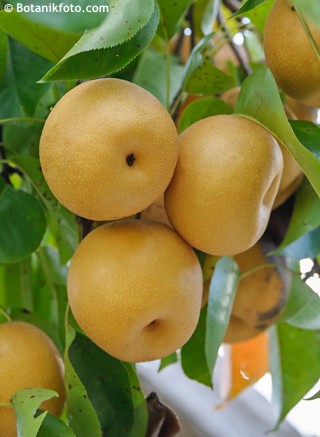Pyrus pyrifolia 'KUMOI' nashi pear, Japanese pear
size/type
small tree,small tree
usual height
3-5m
usual width
1,5-3m
leaves
deciduous broadleaf
colour of leaves
flowers
showy
colour of flowers
blooming time
April-May
location
full sun
USDA zone (lowest)
5b (down to -27°C)
winter protection
for zone 5+6

for zone 7

categorized
Pyrus
Nashi pear is a delicious fruit connected with Orient. This tree comes from Japan, hence its name Japanese pear. It is a merge between apple and pear: it has fruit taste, aroma, and habit of a pear tree, but fruit shape and growing requirements are identical to an apple tree. Since this fruit is still quite expensive in supermarkets (for no obvious reason because it crops heavily), why don’t you grow your own tree? It is almost maintenance free, and you will be surprised how hardy it is.Description of the plant:
Kumoi is a nashi pear producing medium-sized, spherical fruit with partly flattened ends. Smooth skin of fully ripe fruit is dark yellow. The flesh is almost white, very sweet and juicy, and gets softer with maturity. It is best eaten right off the tree because it does not store well – it can be kept in the fridge for a few weeks only. If you pick it up in early September it will be solid like a true pear, but if you wait until end September it will soften up considerably yet keeping its good consistency. It completely lacks typical apple acidity.Beware of wasps when the fruit gets closer to maturity. Once they smell the sweet fruit they fly in without a landing permission, and damage it by biting into one by one. Not speaking of the danger of their sting attack. Just hang small plastic bottles with beer onto the tree a few weeks before harvest. Wasps are alcohol addicts, and when they can choose between fruit and anything with OH in its formula they always go for alcohol. So they drink themselves to death and drown.
Nashi pear flowers at the same time as pear trees which are needed for cross pollination. It can be a vigorous grower so pruning is recommended for locations with limited space. Cut back long branches to a few flower buds, just as you would with an apple tree in late winter. In early summer thinning out is worth some effort in order to leave only such amount of fruit on each branch that can guarantee maturing to a reasonable size. It will grow in any average garden soil, but it does best in medium fertile, moist but well-drained soil in full sun. It is very hardy – min. to -27°C (USDA zone 5b).
Last update: 24-10-2018
QUICK PRICE OVERVIEW
CURRENTLY SOLD OUT
WANT TO TRY A SIMILAR PLANT?















